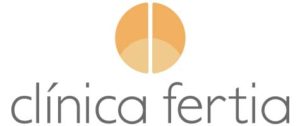Up to what age can I become a mother?
Nowadays, this is a frequently asked question by many women because for personal or social reasons more and more women are choosing to delay motherhood. The reality is that there is no specific age to become a mother, although it is true that after the age of 35 our fertility begins to decline, however that does not automatically mean that we cannot become mothers after the age of 35.
More important than age is to know the ovarian reserve and oocyte quality of each woman as we treat many young women in our clinic with Poor Ovarian Reserve. There are many options available such as oocyte vitrification that allow us to preserve our fertility at a childbearing age, in order to be able to use our eggs in the future.

Age, ovarian reserve and embryo quality
The most important factor in achieving a pregnancy is oocyte quality. It is a well-known fact that the number of eggs and their quality deteriorate with age and that there is variability among women of the same age in terms of their ovarian reserve.
How can we evaluate the ovarian reserve?
The two fundamental parameters that we have to evaluate ovarian reserve are:
The Antral follicle count by ultrasound: The Antral follicles are a formation of fluid-filled spheres/sacs that contain immature eggs.
The levels of the Anti-Mullerian hormone, produced by small follicles so that the higher the level of this hormone, the better the ovarian reserve.
Embryonic quality and age
Age determines an increase in the number of aneuploid-bearing oocytes, so it is estimated that a 40-year-old woman who undergoes an In Vitro Fertilization cycle has around 60% aneuploid embryos, around 41 years old 70%, and women aged 44 and over have more than 85% of genetically abnormal embryos.
Therefore, it is recommended that women who wish to become mothers but who for social or personal reasons wish to delay motherhood, opt for the vitrification of their oocytes to preserve their fertility when their genetic load is high (between 32-36 years old), which will allow them to become mothers in the future with a high success rate.
The reality today is that the group of women who choose to preserve their fertility is still rather small and the majority of women who consult this option have already reached 40 years of age. In this group, a detailed assessment of the case is essential, whether or not there is a male factor, metabolic and hormonal factors, alterations at the uterine level, and assessing their ovarian reserve, since an adequate ovarian reserve improves their prognosis.
All of this does not automatically mean that women over 40 cannot get pregnant. In our fertility clinic we have extensive experience helping mature women fulfill their dream of becoming mothers.
It is important to design the best stimulation protocol with the highest performance in terms of the number of eggs using various strategies, impregnation with androgens, use of double stimulation, and propose a preimplantation genetic diagnosis, since the transfer of a single euploid embryo (genetically normal) gives these women despite their age a gestation rate of 65% in the first transfer, and up to 95% in the third transfer.
For young women choosing to delay motherhood, it is crucial that they get all the vital information necessary to study all the options available and to plan ahead. You can become a mother over the age of 40, it is a personal decision and a journey you can decide to take when the time is right for you!
Contact our team to book a consultation to study your situation and evaluate which treatment is best suited to you.
